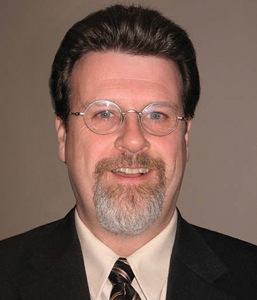
Security supervisor, supervise thyself
By Brian Robertson
Features Opinion Security organizations, like many other organizations, are hierarchical in structure and promote the concept of upward career mobility. That’s fine. But security organizations also tend to be pyramids, so the number of individuals who are going to get to experience upward career mobility, by being selected for promotion, is necessarily smaller than the number who are not. That means that we have to decide who gets promoted and who doesn’t. And what most of us mainly base this decision on is how well the various candidates for promotion are doing at the jobs that we’ve got them doing right now.
Security organizations, like many other organizations, are hierarchical in structure and promote the concept of upward career mobility. That’s fine. But security organizations also tend to be pyramids, so the number of individuals who are going to get to experience upward career mobility, by being selected for promotion, is necessarily smaller than the number who are not. That means that we have to decide who gets promoted and who doesn’t. And what most of us mainly base this decision on is how well the various candidates for promotion are doing at the jobs that we’ve got them doing right now.
This is a problem. In any hierarchical organization, the tasks which
must be performed at each progressive level of promotion are by
definition DIFFERENT tasks than those that are performed by the folks
at the level below. Since the job of a Security Officer is to be a
Security Officer, and the job of a Security Supervisor is to supervise
people, knowing that a person is good at being a Security Officer
doesn’t necessarily tell us too much about whether or not that person
would make a good Supervisor.
To be sure, there are certain individual skills and competencies which
are necessary for success as a Supervisor and observable from the
performance of a Security Officer at her work. Security Supervisors
need to be able to write well, and so do Officers, so that’s something
worth looking at, but at the end of the day the job of a Supervisor
isn’t to write things, it is to supervise. And we seldom structure the
work that Officers do so that we provide them with any opportunity to
do any supervising of other personnel. If Bob has never supervised
anyone, what basis do we have for promoting Bob to the position of
Supervisor?
Perhaps none. For those of us who are hiring supervisors from within it
may be (at best) a crap shoot — maybe we’ll get lucky! But we would
all do well to remember the Peter Principle, which says that within
hierarchical organizations people tend to be promoted until they reach
a level just beyond their competence, and then end up staying there.
Do you know any security supervisors to whom the Peter Principle
applies — not incompetent enough to get fired, but not competent
enough to actually do their job well, either (let alone be considered
for promotion)? For that matter, do you know any Security Managers who
fit this bill?
One of the (at least partial) solutions to this problem is better
training for Supervisors on how to supervise. Yeah, yeah, I’m a
trainer, so of course I think training is the answer to everything. But
the point is not necessarily MORE training for Supervisors. It’s more
relevant, more appropriate, more useful training. Much of the training
that is given to Security Supervisors (and to Security Managers, for
that matter) is training on how to be even more of an expert on
security. Which is great, but it fear that this kind of training does
more to prepare them for their future careers as consultants than it
does to train them for their current positions as Supervisors and
Managers of the work being done by other people.
We try to select our best people to be our Supervisors. We owe it to
ourselves — and to them — to try to get their best work out of them.
And the best way for a Security Supervisor to contribute to an
organization is not by being a kind of uber-officer, who really always does
everything just right when he’s the guy responding. It’s good if he or
she is that. But the best way for a Security Supervisor to contribute
to an organization is through his or her ability to help those he or
she supervises do the best possible job THEY can do. Do we who manage
those Supervisors do enough to equip them ”“ to train them ”“ to do THAT
well?
Print this page
Leave a Reply